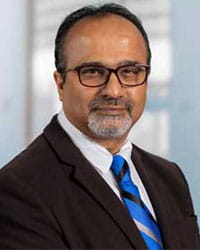Critical Care Medicine Fellowship
The Department of Medicine and the Department of Anesthesia and Critical Care at Houston Methodist Hospital offer a Critical Care Medicine (CCM) Fellowship Program accredited by the ACGME (Accreditation Council for Graduate Medical Education). Before the start of the fellowship, applicants must have completed residency training in internal medicine accredited by the ACGME.
The CCM fellowship program consists of 24 months in duration.
21
Faculty With Academic Appointments
23
GME Trainees
20
Peer-Reviewed Publications in 2024
2
Active Clinical Trials
Eligibility & Application
Requirements
To be eligible for our Critical Care Medicine Fellowship Program position, general requirements must be met:
- Must be a U.S. Citizen, green card holder, or J-1 visa holder.
- Disclosure if in seventh year of J-1 visa training.
- Must have completed an ACGME-accredited residency program under Internal Medicine.
- For the one-year track, candidates also must have completed a subspecialty fellowship under Internal Medicine.
Responsibility
Houston Methodist is committed to improving the health of our patients, employees, and communities around us. As a health care provider, it’s our responsibility to promote a healthier environment for our employees.
- Drug and Tobacco Screening- Job seekers will be tested for nicotine and drug usage during the post-offer physical. If a job seeker tests positive for nicotine use, including nicotine gum and patches, the offer will be rescinded, and individuals will be given the opportunity to participate in a free Houston Methodist-provided tobacco cessation program. Job seekers wishing to reapply after testing positive for nicotine may do so 90 days after the date the initial offer was rescinded. If the job seeker tests positive for drug use, the offer will be rescinded. Job seekers wishing to reapply after the drug screening is positive may do so one year after the date the initial offer was rescinded.
- Background Check - Prior to employment start date, job seekers must complete a criminal background check.
Application Process
For the Critical Care Medicine Fellowship, we exclusively use ERAS. Applications are accepted through ERAS beginning in July each year.
To submit applications through ERAS, applicants must contact the ERAS Fellowship Documents Office and request an electronic token, which is then used for access to the ERAS application site. The following materials must be submitted through ERAS:
- ERAS application
- Curriculum vitae (ERAS format is acceptable)
- Personal statement
- Three letters of recommendation
- Medical school transcript
- USMLE results
- A copy of your ECFMG certificate and visa, if applicable
Interview Days
September - November
Get in Touch
Program Contact
Jonaya Ellis
Residency Program Coordinator
6565 Fannin Street, Suite B440
Houston, TX 77030
Email: CCMHMH@houstonmethodist.org


